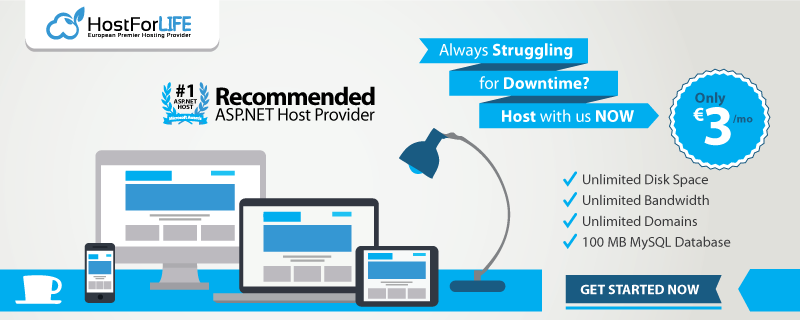Background jobs and scheduled activities are vital for unloading long-running or repeating operations from the main request flow. These jobs frequently carry out delicate activities like payment processing, email alerts, or database housekeeping, whether they are done with Hangfire, Quartz.NET, Azure Functions, or bespoke IHostedService workers.
Attackers may attempt to misuse them for data exfiltration, privilege escalation, or resource exhaustion because they often operate without direct user input. This article examines typical risks and methods for protecting scheduled tasks and background jobs in ASP.NET Core.
1. Common Threats Against Background Jobs
- Job Injection: The attacker tricks the system into enqueuing malicious tasks.
- Privilege Escalation: Jobs run with elevated permissions that an attacker can exploit.
- Data Exfiltration: Compromised jobs leak sensitive information.
- Resource Abuse: Attackers trigger excessive jobs (e.g., sending millions of emails).
- Timing Attacks: Manipulating job schedules to run at unexpected intervals.
- Replay Attacks: Re-executing old jobs to gain unauthorized results.
2. Security Strategies for Background Jobs
2.1. Secure Job Scheduling Interfaces
If you expose APIs or dashboards (e.g., Hangfire Dashboard) for job management:
- Protect with strong authentication (JWT, Identity, OAuth).
- Enforce role-based authorization: only admins can enqueue/cancel jobs.
- Use HTTPS only to protect credentials.
Example
2.2. Input Validation for Jobs
Jobs often process data passed by users (emails, files, reports). Validate everything:
- Reject oversized payloads.
- Sanitize inputs (no SQL injection, path traversal).
- Validate job parameters before execution.
2.3. Limit Job Frequency and Retry Policies
Prevent attackers from abusing retries:
- Configure maximum retries.
- Add exponential backoff to avoid rapid resubmissions.
With retries (Hangfire):
2.4. Use Least Privilege for Job Execution
- Run background workers with restricted credentials.
- Avoid giving direct database
sarights to jobs. - Use separate service accounts for job execution.
2.5. Protect Sensitive Data in Jobs
- Store secrets (API keys, DB passwords) in Azure Key Vault / AWS Secrets Manager instead of code.
- Encrypt job payloads at rest (e.g., using
IDataProtector). - Never log sensitive information.
2.6. Monitor and Audit Jobs
- Log job execution details: who triggered it, when, and what parameters.
- Track job failures and anomalies.
- Send alerts if a job executes outside its schedule.
Example with Serilog
2.7. Throttle Resource Usage
- Limit concurrent jobs to prevent system overload.
- Use rate limiting for scheduled API calls.
- Add cancellation tokens to jobs for graceful shutdown.
2.8. Protect Against Cron Expression Abuse
If cron expressions come from user input (e.g., multi-tenant job scheduling):
- Restrict valid ranges.
- Prevent “every second” jobs unless necessary.
- Enforce minimum intervals.
3. Infrastructure-Level Protections
Beyond code-level defenses, infrastructure plays a huge role:
- Use container isolation for worker services.
- Apply resource quotas (CPU/memory) in Kubernetes or Docker.
- Enable cloud provider protections (Azure Monitor, AWS CloudWatch) for suspicious job activity.
4. Best Practices Checklist
- Protect job dashboards/APIs with auth and role-based access.
- Validate all job inputs.
- Limit retries and enforce backoff policies.
- Run jobs with least privilege accounts.
- Store secrets securely in a vault.
- Monitor execution and alert on anomalies.
- Add cancellation tokens and resource limits.
- Restrict user-provided cron expressions.
Conclusion
Background jobs and scheduled tasks often fly under the radar when thinking about application security, yet they handle critical operations and are prime targets for abuse. By combining authentication, input validation, least privilege, retries, monitoring, and infrastructure controls, you can significantly reduce the risk of job-related attacks in your ASP.NET Core applications.
Best ASP.NET Core 10.0 Hosting
The feature and reliability are the most important things when choosing a good ASP.NET Core 10.0 hosting. HostForLIFE is the leading provider of Windows hosting and affordable ASP.NET Core , their servers are optimized for PHP web applications such as the latest ASP.NET Core 10.0 version. The performance and the uptime of the ASP.NET Core hosting service are excellent, and the features of the web hosting plan are even greater than what many hosting providers ask you to pay for. At HostForLIFE.eu, customers can also experience fast ASP.NET Core hosting. The company invested a lot of money to ensure the best and fastest performance of the datacenters, servers, network and other facilities. Its data centers are equipped with top equipment like cooling system, fire detection, high-speed Internet connection, and so on. That is why HostForLIFE.eu guarantees 99.9% uptime for ASP.NET Core . And the engineers do regular maintenance and monitoring works to assure its ASP.NET Core hosting are security and always up.



